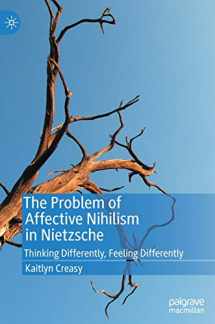
The Problem of Affective Nihilism in Nietzsche: Thinking Differently, Feeling Differently
Book details
Summary
Description
Nietzsche is perhaps best known for his diagnosis of the problem of nihilism. Though his elaborations on this diagnosis often include descriptions of certain beliefs characteristic of the nihilist (such as beliefs in the meaninglessness or worthlessness of existence), he just as frequently specifies a variety of affective symptoms experienced by the nihilist that weaken their will and diminish their agency. This affective dimension to nihilism, however, remains drastically underexplored. In this book, Kaitlyn Creasy offers a comprehensive account of affective nihilism that draws on Nietzsche's drive psychology, especially his reflections on affects and their transformative potential. After exploring Nietzsche's account of affectivity (illuminating especially the transpersonal nature of affect in Nietzsche's thought) and the phenomenon of affective nihilism, Creasy argues that affective nihilism might be overcome by employing a variety of Nietzschean strategies: experimentation, self-narration, and self-genealogy.


We would LOVE it if you could help us and other readers by reviewing the book
Book review



